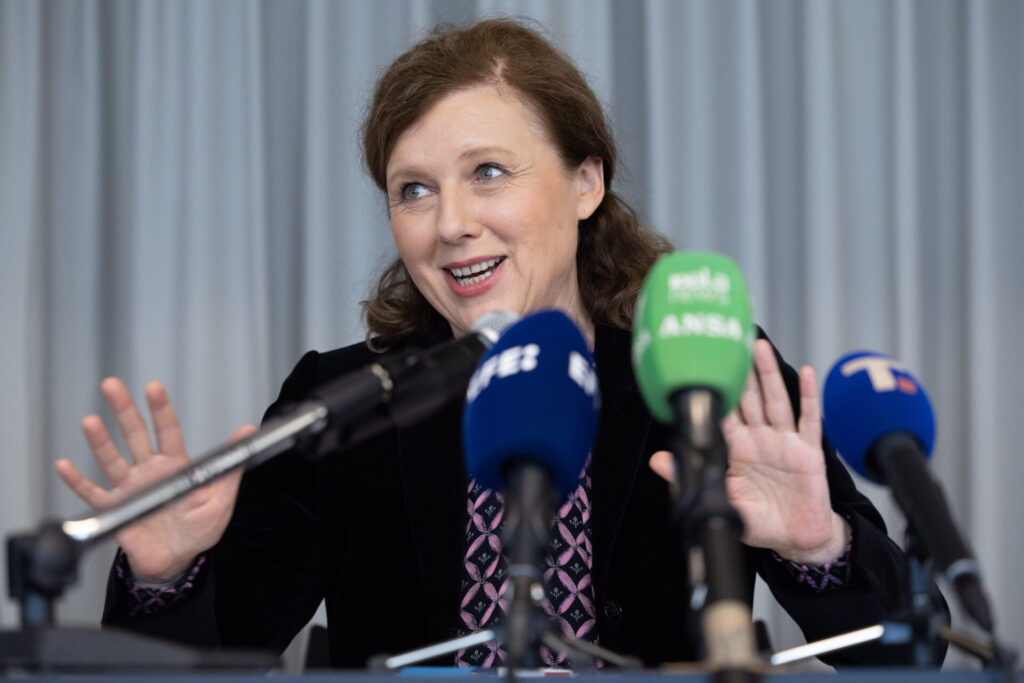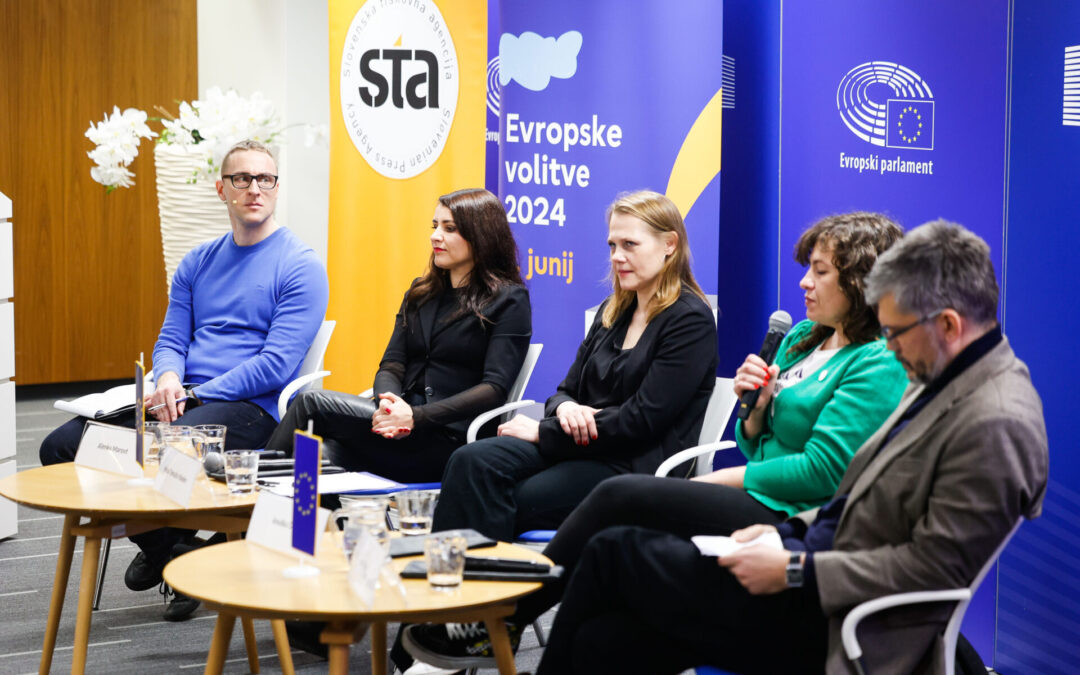Jerneja Jug Jerše, Head of the European Commission Representation in Slovenia warned in a panel discussion, co-organised by the Slovenian Press Agency (STA) in Ljubljana on February 2, that “in the context of the upcoming European elections, we are seeing large disinformation campaigns focused on key EU policies”.
She noted the Green Deal, aid to Ukraine and the joint migration policy as areas where disinformation is rife. The goal of spreading disinformation is to sow the seed of doubt and undermine trust in media, institutions and democracy, Jug Jerše said.
Attendees of the panel discussion said that the goal of disinformation is to evoke unease and fear in society, giving the example of untrue statements on growing violence by immigrants in Ljubljana.
One major issue in reporting on political campaigns is that the candidates have become aware of fact-checking and give vague statements without exact figures, said Alenka Marovt, editor of several fact-checking programs on Slovenian commercial television channel POP TV.
Anuška Delić, editor-in-chief at Oštro, an online portal focused on research journalism, said that “fact-checking should be the work of journalists. By letting special teams do the work, we have already lost the fight”, she stressed. Although used more by the right-wing, disinformation is also used by the left, as Oštro`s archive shows, said Delić.

On February 23, Vice-President of the European Commission, Věra Jourová, told the Czech News Agency CTK that the aim of disinformation campaigns is to influence public opinion and thus affect society as a whole. However, she added, false or untrue news can be refuted by verification.
On February 21, Renate Schroeder, Director at the European Federation of Journalists (EFJ), told the European Newsroom (enr) that the draft guidelines for the platforms on mitigation of risks, such as disinformation, recently published by the European Commission, only once mention the role of journalists and media services providers. They instead focus on cooperation with fact-checkers among others. “We cannot leave the work against disinformation to guidelines for the platforms, journalists are fact-checkers by their profession and we have to enable them to do their work at national, regional and local level and we are far from that,” Schroeder said.
While the adopted European Media Freedom Act is important as it protects journalists and their editorial independence, one increasing problem is the appearance of too many “news deserts” all over Europe. We need an awareness “to sustain journalism as a public good,” Schroeder said.
Terry Reintke, Green MEP and the party’s lead candidate in the June EU elections, sees the key in the implementation of the Digital Services Act which should ensure on a European level “that platforms do what they have to do in order to prevent disinformation from spreading or even, maybe interventions into the electoral result from actors like Russia”. She added that “the Commission has to make sure that the platforms take their responsibility there”.
This article is part of the enr’s EU Elections Spotlight: Disinformation in Europe. The content is based on news by agencies participating in the enr.
